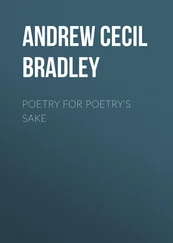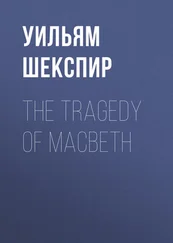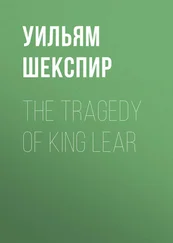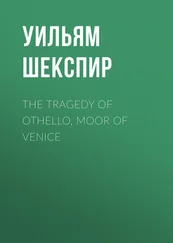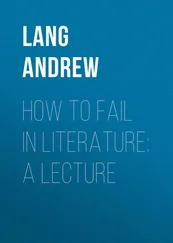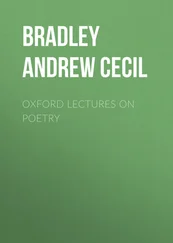Andrew Cecil Bradley - Shakespearean Tragedy - Lectures on Hamlet, Othello, King Lear, Macbeth
Здесь есть возможность читать онлайн «Andrew Cecil Bradley - Shakespearean Tragedy - Lectures on Hamlet, Othello, King Lear, Macbeth» — ознакомительный отрывок электронной книги совершенно бесплатно, а после прочтения отрывка купить полную версию. В некоторых случаях можно слушать аудио, скачать через торрент в формате fb2 и присутствует краткое содержание. Жанр: Биографии и Мемуары, foreign_antique, на английском языке. Описание произведения, (предисловие) а так же отзывы посетителей доступны на портале библиотеки ЛибКат.
- Название:Shakespearean Tragedy: Lectures on Hamlet, Othello, King Lear, Macbeth
- Автор:
- Жанр:
- Год:неизвестен
- ISBN:нет данных
- Рейтинг книги:5 / 5. Голосов: 1
-
Избранное:Добавить в избранное
- Отзывы:
-
Ваша оценка:
- 100
- 1
- 2
- 3
- 4
- 5
Shakespearean Tragedy: Lectures on Hamlet, Othello, King Lear, Macbeth: краткое содержание, описание и аннотация
Предлагаем к чтению аннотацию, описание, краткое содержание или предисловие (зависит от того, что написал сам автор книги «Shakespearean Tragedy: Lectures on Hamlet, Othello, King Lear, Macbeth»). Если вы не нашли необходимую информацию о книге — напишите в комментариях, мы постараемся отыскать её.
Shakespearean Tragedy: Lectures on Hamlet, Othello, King Lear, Macbeth — читать онлайн ознакомительный отрывок
Ниже представлен текст книги, разбитый по страницам. Система сохранения места последней прочитанной страницы, позволяет с удобством читать онлайн бесплатно книгу «Shakespearean Tragedy: Lectures on Hamlet, Othello, King Lear, Macbeth», без необходимости каждый раз заново искать на чём Вы остановились. Поставьте закладку, и сможете в любой момент перейти на страницу, на которой закончили чтение.
Интервал:
Закладка:
Nothing, surely, can be clearer than the meaning of this famous soliloquy. The doubt which appears at its close, instead of being the natural conclusion of the preceding thoughts, is totally inconsistent with them. For Hamlet's self-reproaches, his curses on his enemy, and his perplexity about his own inaction, one and all imply his faith in the identity and truthfulness of the Ghost. Evidently this sudden doubt, of which there has not been the slightest trace before, is no genuine doubt; it is an unconscious fiction, an excuse for his delay—and for its continuance.
A night passes, and the day that follows it brings the crisis. First takes place that interview from which the King is to learn whether disappointed love is really the cause of his nephew's lunacy. Hamlet is sent for; poor Ophelia is told to walk up and down, reading her prayer-book; Polonius and the King conceal themselves behind the arras. And Hamlet enters, so deeply absorbed in thought that for some time he supposes himself to be alone. What is he thinking of? 'The Murder of Gonzago,' which is to be played in a few hours, and on which everything depends? Not at all. He is meditating on suicide; and he finds that what stands in the way of it, and counterbalances its infinite attraction, is not any thought of a sacred unaccomplished duty, but the doubt, quite irrelevant to that issue, whether it is not ignoble in the mind to end its misery, and, still more, whether death would end it. Hamlet, that is to say, is here, in effect, precisely where he was at the time of his first soliloquy ('O that this too too solid flesh would melt') two months ago, before ever he heard of his father's murder. 55His reflections have no reference to this particular moment; they represent that habitual weariness of life with which his passing outbursts of emotion or energy are contrasted. What can be more significant than the fact that he is sunk in these reflections on the very day which is to determine for him the truthfulness of the Ghost? And how is it possible for us to hope that, if that truthfulness should be established, Hamlet will be any nearer to his revenge? 56
His interview with Ophelia follows; and its result shows that his delay is becoming most dangerous to himself. The King is satisfied that, whatever else may be the hidden cause of Hamlet's madness, it is not love. He is by no means certain even that Hamlet is mad at all. He has heard that infuriated threat, 'I say, we will have no more marriages; those that are married, all but one, shall live; the rest shall keep as they are.' He is thoroughly alarmed. He at any rate will not delay. On the spot he determines to send Hamlet to England. But, as Polonius is present, we do not learn at once the meaning of this purpose.
Evening comes. The approach of the play-scene raises Hamlet's spirits. He is in his element. He feels that he is doing something towards his end, striking a stroke, but a stroke of intellect. In his instructions to the actor on the delivery of the inserted speech, and again in his conversation with Horatio just before the entry of the Court, we see the true Hamlet, the Hamlet of the days before his father's death. But how characteristic it is that he appears quite as anxious that his speech should not be ranted as that Horatio should observe its effect upon the King! This trait appears again even at that thrilling moment when the actor is just going to deliver the speech. Hamlet sees him beginning to frown and glare like the conventional stage-murderer, and calls to him impatiently, 'Leave thy damnable faces and begin!' 57
Hamlet's device proves a triumph far more complete than he had dared to expect. He had thought the King might 'blench,' but he does much more. When only six of the 'dozen or sixteen lines' have been spoken he starts to his feet and rushes from the hall, followed by the whole dismayed Court. In the elation of success—an elation at first almost hysterical—Hamlet treats Rosencrantz and Guildenstern, who are sent to him, with undisguised contempt. Left to himself, he declares that now he could
drink hot blood,
And do such bitter business as the day
Would quake to look on.
He has been sent for by his mother, and is going to her chamber; and so vehement and revengeful is his mood that he actually fancies himself in danger of using daggers to her as well as speaking them. 58
In this mood, on his way to his mother's chamber, he comes upon the King, alone, kneeling, conscience-stricken and attempting to pray. His enemy is delivered into his hands.
Now might I do it pat, now he is praying:
And now I'll do it: and so he goes to heaven:
And so am I revenged. 59That would be scanned.
He scans it; and the sword that he drew at the words, 'And now I'll do it,' is thrust back into its sheath. If he killed the villain now he would send his soul to heaven; and he would fain kill soul as well as body.
That this again is an unconscious excuse for delay is now pretty generally agreed, and it is needless to describe again the state of mind which, on the view explained in our last lecture, is the real cause of Hamlet's failure here. The first five words he utters, 'Now might I do it,' show that he has no effective desire to 'do it'; and in the little sentences that follow, and the long pauses between them, the endeavour at a resolution, and the sickening return of melancholic paralysis, however difficult a task they set to the actor, are plain enough to a reader. And any reader who may retain a doubt should observe the fact that, when the Ghost reappears, Hamlet does not think of justifying his delay by the plea that he was waiting for a more perfect vengeance. But in one point the great majority of critics, I think, go astray. The feeling of intense hatred which Hamlet expresses is not the cause of his sparing the King, and in his heart he knows this; but it does not at all follow that this feeling is unreal. All the evidence afforded by the play goes to show that it is perfectly genuine, and I see no reason whatever to doubt that Hamlet would have been very sorry to send his father's murderer to heaven, nor much to doubt that he would have been glad to send him to perdition. The reason for refusing to accept his own version of his motive in sparing Claudius is not that his sentiments are horrible, but that elsewhere, and also in the opening of his speech here, we can see that his reluctance to act is due to other causes.
Конец ознакомительного фрагмента.
Текст предоставлен ООО «ЛитРес».
Прочитайте эту книгу целиком, купив полную легальную версию на ЛитРес.
Безопасно оплатить книгу можно банковской картой Visa, MasterCard, Maestro, со счета мобильного телефона, с платежного терминала, в салоне МТС или Связной, через PayPal, WebMoney, Яндекс.Деньги, QIWI Кошелек, бонусными картами или другим удобным Вам способом.
1
Julius Caesar is not an exception to this rule. Caesar, whose murder comes in the Third Act, is in a sense the dominating figure in the story, but Brutus is the 'hero.'
2
Timon of Athens , we have seen, was probably not designed by Shakespeare, but even Timon is no exception to the rule. The sub-plot is concerned with Alcibiades and his army, and Timon himself is treated by the Senate as a man of great importance. Arden of Feversham and A Yorkshire Tragedy would certainly be exceptions to the rule; but I assume that neither of them is Shakespeare's; and if either is, it belongs to a different species from his admitted tragedies. See, on this species, Symonds, Shakspere's Predecessors , ch. xi.
Читать дальшеИнтервал:
Закладка:
Похожие книги на «Shakespearean Tragedy: Lectures on Hamlet, Othello, King Lear, Macbeth»
Представляем Вашему вниманию похожие книги на «Shakespearean Tragedy: Lectures on Hamlet, Othello, King Lear, Macbeth» списком для выбора. Мы отобрали схожую по названию и смыслу литературу в надежде предоставить читателям больше вариантов отыскать новые, интересные, ещё непрочитанные произведения.
Обсуждение, отзывы о книге «Shakespearean Tragedy: Lectures on Hamlet, Othello, King Lear, Macbeth» и просто собственные мнения читателей. Оставьте ваши комментарии, напишите, что Вы думаете о произведении, его смысле или главных героях. Укажите что конкретно понравилось, а что нет, и почему Вы так считаете.





